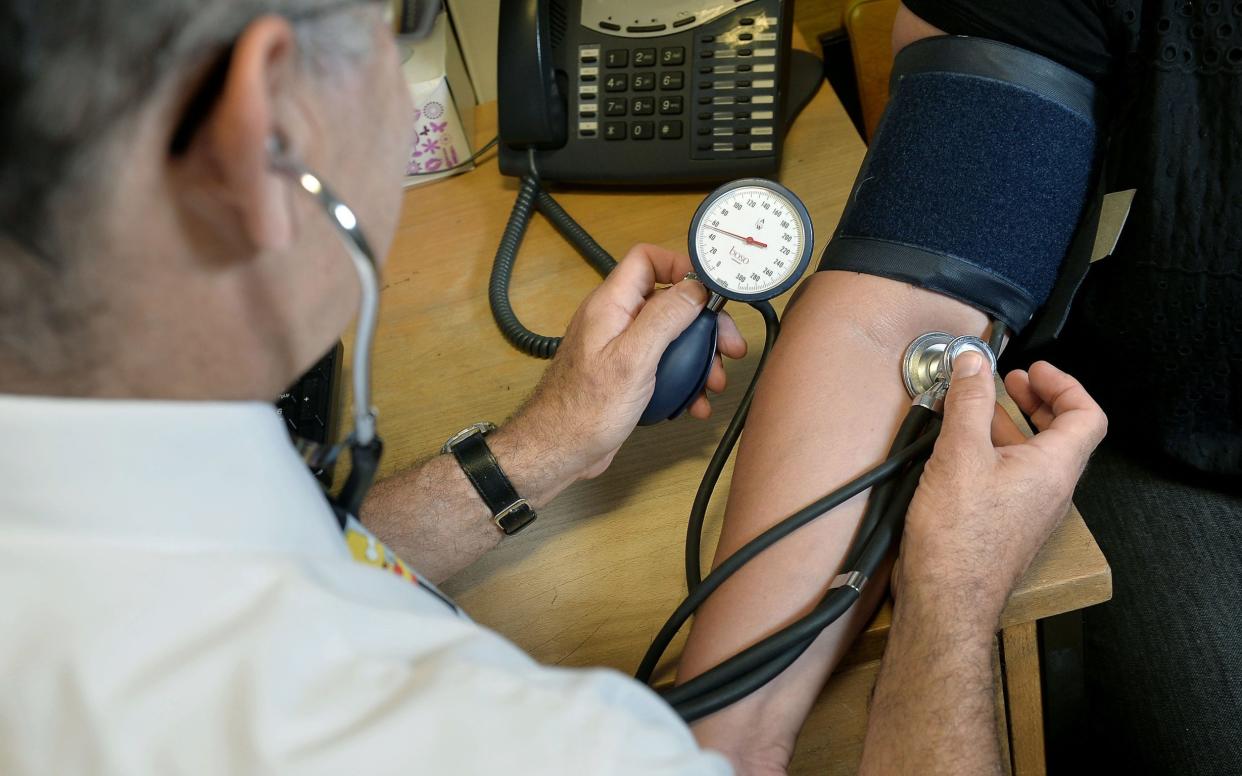‘Doctor knows best’ attitude leads to patient being ignored

A “doctor knows best” attitude means patients are too often ignored, a University of Cambridge study has said.
Researchers found that the majority of doctors did not value a patient’s view of their own symptoms or illness.
The experts said this way of working was “often dangerous” and should be changed to “a more equal relationship” where patients’ interpretation of how they feel is taken on board.
It comes after proposals have been put to the Government to introduce “Martha’s Rule”, which would give patients and parents the right to ask for a second opinion or review.
The plans, currently under review by officials, came as a result of doctors downplaying the concerns of Martha Mills’ parents, Merope Mills and Paul Laity, which led to the death of their 13-year-old girl from sepsis because she was not admitted to intensive care quickly enough.
The study, led by the University of Cambridge and Kings’ College London, analysed 676 patients with neuropsychiatric lupus (NPSLE) because it is “challenging to diagnose”.
Lupus is a chronic condition that impacts the immune system, causing problems with the skin, joints, kidneys and other organs. If it develops into NPSLE, then it has affected the brain, spinal cord or other nerves and can lead to seizures, strokes and psychosis.
Almost half of patients said they were never or rarely asked for self-assessments of their disease, while a quarter said their self-assessments were never or rarely consistent with their clinician’s.
‘Degrading and dehumanising’
One patient told researchers it was “degrading and dehumanising” not to be believed.
“If I had continued to have regard for clinicians’ expertise over mine, I would be dead,” they said. “When I enter a medical appointment and my body is being treated as if I don’t have any authority over it and what I’m feeling isn’t valid then that is a very unsafe environment.”
The researchers examined the value that doctors gave to 13 types of evidence when making a diagnosis, which included scans, tests and other checks as well as patient views.
They asked 291 clinicians to rank the most important methods for diagnosing NPSLE and found that on average, they ranked their own assessment as the most important, while patient views were among the least.
The presence of other disease symptoms and abnormal brain scans were the other two top methods.
Asking a patient for their view was ranked in the three least important steps by 48.1 per cent of medics and in the top three most important by just 3.8 per cent. .
Dr Melanie Sloan, lead author, said: “It’s incredibly important that we listen to and value patients’ insights and their own interpretations of their symptoms, particularly those with long-standing diseases - after all, they are the people that know what it is like to live with their condition.
“But we also need to make sure that clinicians have the time to fully explore each patient’s symptoms, something that is challenging within the constraints of current health systems.”
‘Paternalistic and dangerous’
Sue Farrington, the co-chair of the Rare Autoimmune Rheumatic Disease Alliance, said: “It’s time to move on from the paternalistic, and often dangerous, ‘doctor knows best’ to a more equal relationship where the patients with lived experiences and the doctors with learnt experiences work more collaboratively.”
However, the study found that psychiatrists and nurses were more likely to value patient opinions.
One psychiatrist told researchers: “Patients often arrive in clinic having had multiple assessments, having researched their own condition to a very high level and having worked hard to understand what is going on with their own body.”
Dr Tom Pollak, the senior study author, said: “No human being is always going to be able to accurately pinpoint the cause of symptoms, and patients and clinicians can both get this wrong.
“But combining and valuing both views, especially when the diagnostic tests aren’t advanced enough to always detect these diseases, may reduce misdiagnoses and improve clinician and patient relationships.”
The study was published in the journal, Rheumatology.

